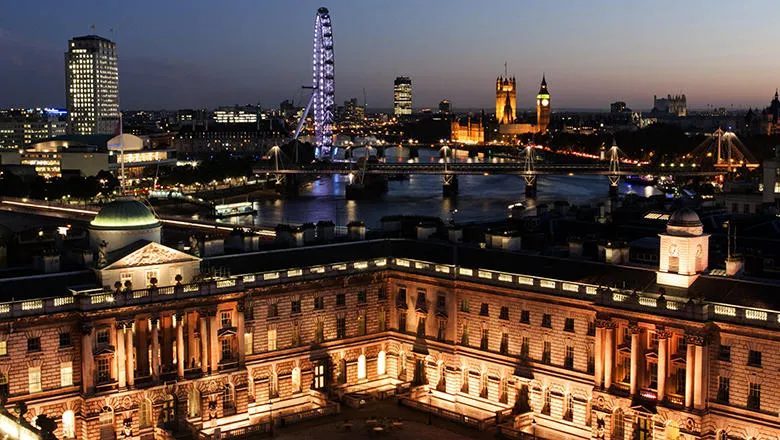12 March 2018
The challenging reality of free speech
A comment piece by Professor Edward Byrne AC, President & Principal and Professor Jonathan Grant, Vice President & Vice Principal (Service)

Last week a member of staff at King’s College London was knocked out and hospitalised by thugs trying to disrupt an event being hosted by the King’s Libertarian Society. The event, which was co-hosted with the Ayn Rand Centre, was a panel discussion with Yaron Brook and Carl Benjamin on the philosophy of objectivism. Now let’s be clear – the speakers had extreme views that neither of us agree with. But we do believe they have the right to express those views and for them to be challenged in an open, uncensored and safe debate.
But, this did not happen because a group of aggressive and violent protestors – some of whom wore balaclavas – forced their way through and over security barriers into the campus setting off a smoke bomb with some of the group then fighting their way into the lecture theatre. Our security staff on the ground made the immediate and right decision to cancel the event.
The next morning King’s was accused of both violating freedom of speech and not ensuring the safety of students, staff and visitors. And both accusations are true – the event was cancelled; and it was unsafe.
Thankfully this is the exception. Last year King’s hosted nearly 3,000 events. Working closely with colleagues in our Student Union, we assess the risk of all events against a range of criteria including their legality and the risk of protest and violence. Of the 3,000 events, 20 were referred for review and four deemed to be high-risk and none were prevented from occurring. But by allowing the high-risk events to occur we are inevitably criticised for either not preventing “freedom from hate” or for allowing non-violent – but often noisy – protests which violate “freedom of speech”.
Freedom of expression in the university environment is subject to a complex array of legislation. For example, freedom of thought, conscience and religion (Article 9), freedom of expression (Article 10), and freedom of assembly and association (Article 11) are safeguarded by the European Convention on Human Rights, which was incorporated into UK law by the Human Rights Act 1998. Also, Section 43 of the Education Act (No. 2) 1986 imposes a positive and proactive duty on universities to establish and follow a code of practice to protect freedom of speech. The Act provides that “persons concerned in the government of any establishment... shall take such steps as are reasonably practicable to ensure that freedom of speech within the law is secured for members, students and employees of the establishment and for visiting speakers.”
Exercising this freedom “within the law” means that it is restricted by criminal and civil law, and certain types of conduct and speech are unlawful under the Public Order Act 1986, Protection from Harassment Act 1997, Terrorism Acts 2000 and 2006 and the Equality Act 2010. Universities also have a specific statutory requirement under the Government’s Prevent Duty, in the Counter-Terrorism and Security Act 2015, to have due regard to the need to prevent people from being drawn into terrorism.
In practice, we have to constantly make a trade-off between freedom of speech and freedom from hate; and we have to strike a balance between the right to protest and the right to be safe.
As a university, we want to offer the widest possible opportunity for the free expression of knowledge and ideas, as well as the right to peaceful protest against them, but we must do so within the boundaries of the law and our duty of care to others within our premises.
So, it is worrying that universities are being caught in the middle of the increasingly binary, polarised and ongoing culture wars – a war that we can only lose as there are no right answers. It is a Gordian knot with no loophole.
One sided critiques of universities as they look to manage these complex issues are everywhere. These are being broadcast to the world on social media and damaging our standing, our research collaborations and our attractiveness to the best minds worldwide. UK universities are not without their challenges, despite being world-leading. We do need to renew our contract with society through wholesale reform. But we need to do that together, with respect, and with a shared understanding of the deep challenges that we currently face. In the words of King’s graduate – Desmond Tutu: “If you want peace, you don’t talk to your friends. You talk to you enemies.”
ENDS
For more information please contact the Public Relations Department at King’s College London on +44 (0)207 848 3202 or pr@kcl.ac.uk.
For more information about King's please visit the King's in brief web pages.
World-changing ideas. Life-changing impact: https://spotlight.kcl.ac.uk/
